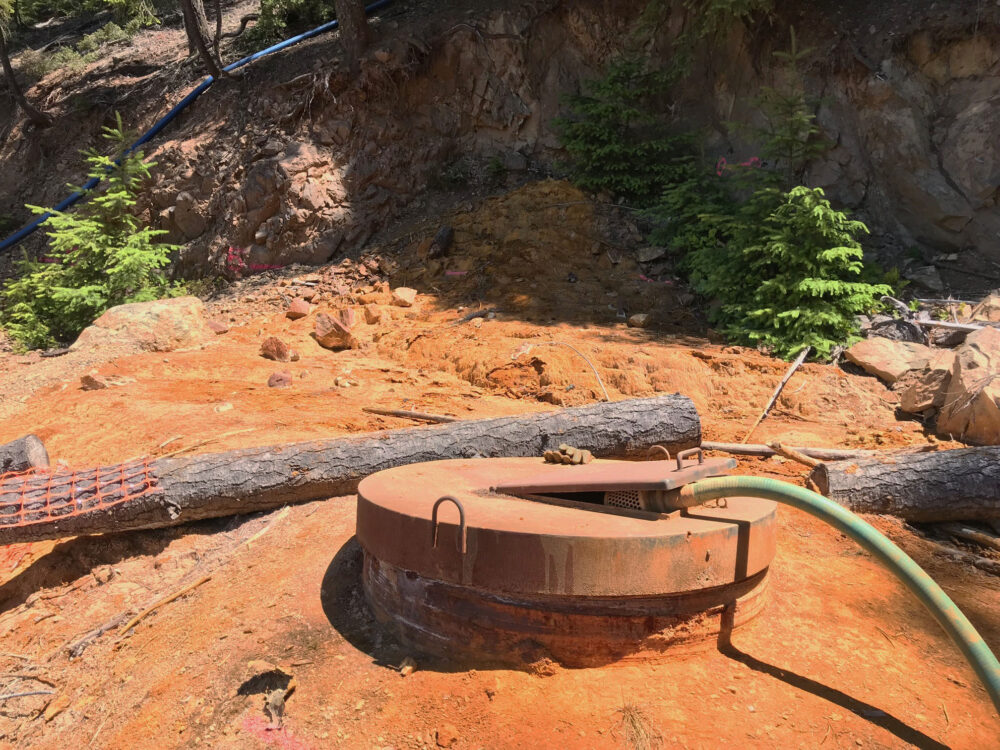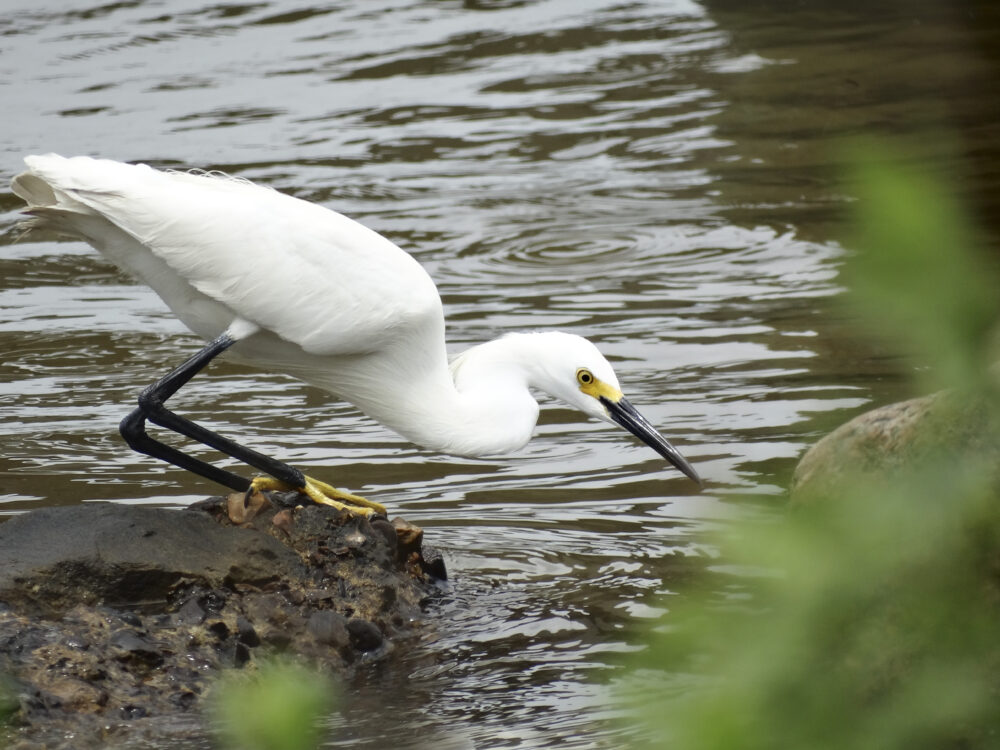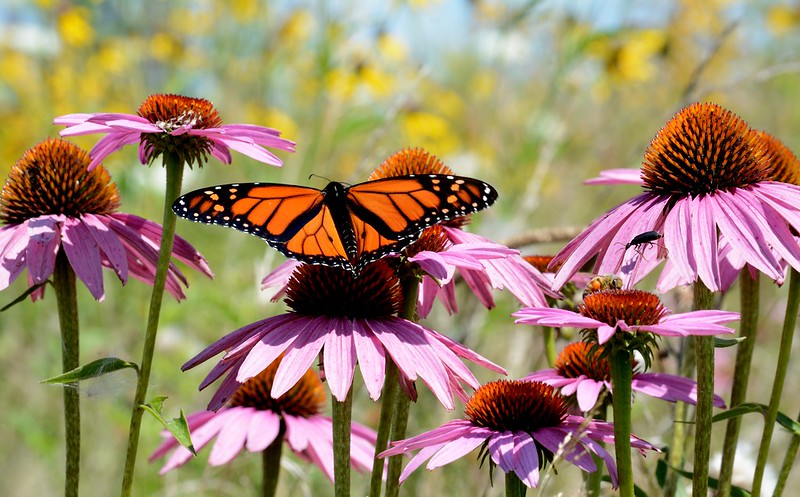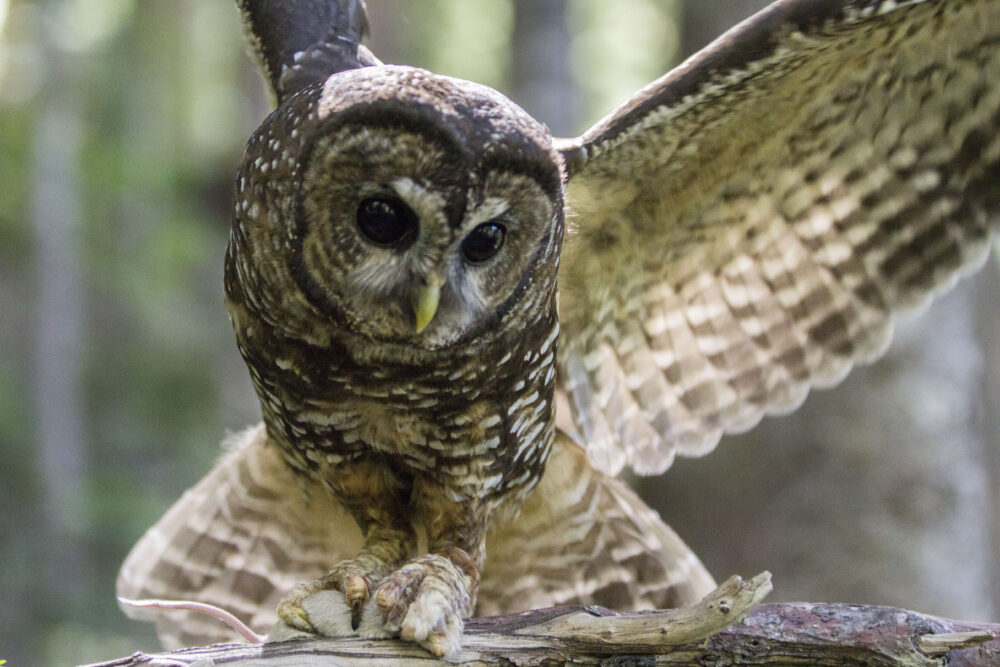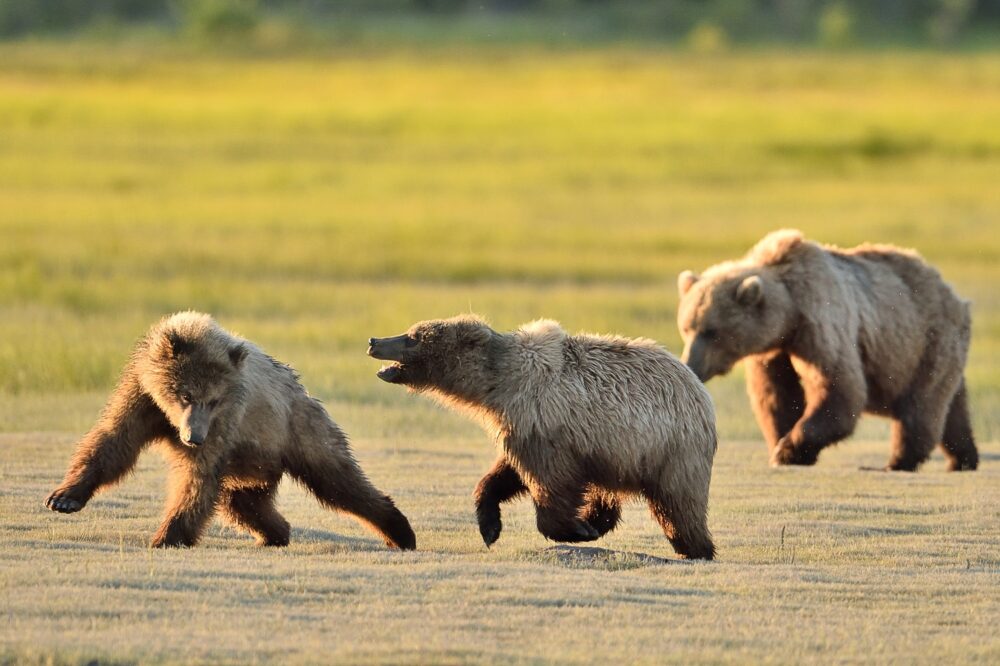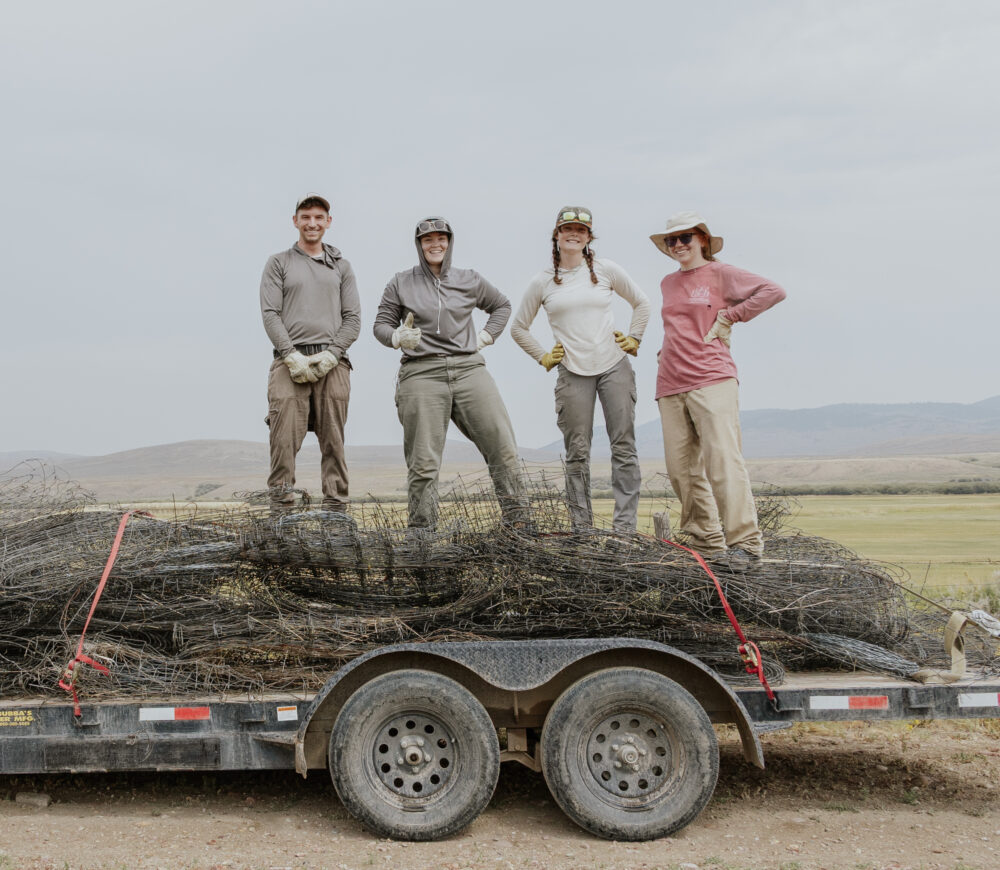We have much more to do and your continued support is needed now more than ever.
Wins for Wildlife in Water Bill

This week, the 2018 Water Resources Development Act was signed into law – which contains several wins for communities and wildlife that depend on clean water! The act promotes natural infrastructure, expands investments in our nation’s drinking water, and makes America more resilient. The bipartisan bill passed the Senate by a vote of 99-1 and passed the House by voice vote.
The act sets the stage for important future progress, including:
- Natural Infrastructure:
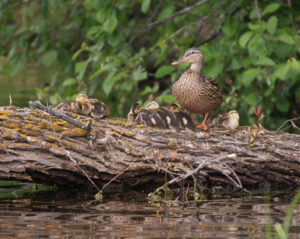
Hen mallard and her ducklings along Big Pine Lake shoreline in Minnesota. Credit: Charles Huber. The act requires the Army Corps of Engineers to consider natural infrastructure solutions (healthy wetlands, floodplains, and rivers) for flood and storm projects if such solutions are “practicable.” This is great for both communities and wildlife like the green heron, black bear, and mallard ducks alike, since natural infrastructure provides vital habitat, protects communities from floods, and sustains our outdoor recreation economy.
- Advancing Everglades Restoration: The act advances a long-delayed water storage reservoir that will reduce the polluted discharges from Lake Okeechobee to the east and west that trigger the recurring toxic blue-green algae outbreaks plaguing South Florida.This reservoir project is a key piece in the puzzle to achieve comprehensive Everglades restoration and restore the natural flow of clean water south to Florida Bay where it is desperately needed. This is a win for Everglades wildlife like wood storks, roseate spoonbills, and manatees.
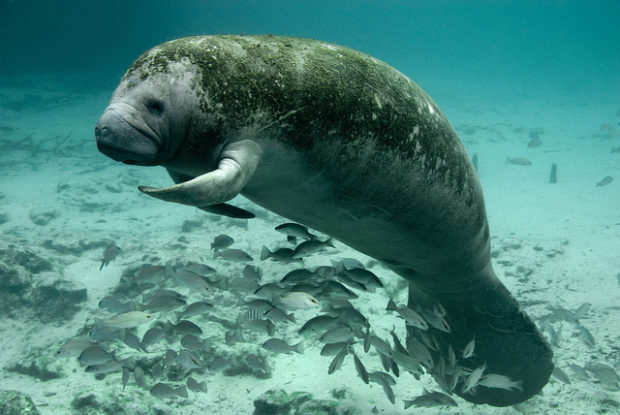
Manatees are challenged by outbreaks of blue-green algae and red tide. Credit: USFWS. - Imposing Restrictions on the Pearl River Project, Mississippi: National Wildlife Federation is working with Mississippi Wildlife Federation and other partners to stop the Pearl River Project in Mississippi which will destroy 1,500 acres of floodplain wetlands, reduce freshwater flows to the Gulf of Mexico, expose people and wildlife to extensive toxic pollution, and cause the collapse of 7 bridges.
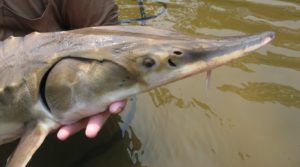
Threatened Gulf sturgeon have been impacted by hurricanes, oil spills, and toxic wastewater. Credit: Kayla Kimmel/USFWS. This habitat destruction could harm wildlife like Gulf sturgeon, ringed sawback turtle, and the river otter. The final Water Resources Development Act imposes important restrictions on moving this project to the next phase of detailed technical design, including a requirement to address all adverse downstream impacts, instead of moving the project to the design phase before the environmental impact statement (EIS) was finalized, as was originally proposed.
- Removing Outdated Infrastructure: The act takes important steps to facilitate the removal of outdated and dangerous structures—like the locks and dams on the Barren and Green Rivers in Kentucky. Removing outdated dams and locks can help restore healthy habitat for fish and wildlife like freshwater mussels and trout.
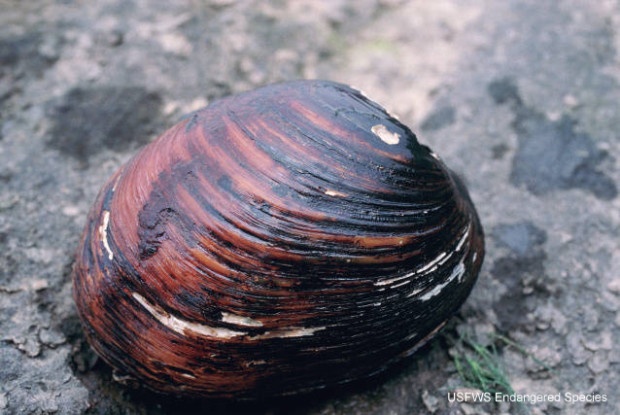
Importantly, this water resources bill is also one of the “cleanest” we’ve seen, meaning that few rollbacks of environmental protections were included. Wildlife champions like Sen. Carper, Sen. Barrasso, Rep. DeFazio, and Rep. Shuster helped beat back efforts to weaken the National Environmental Policy Act (NEPA), a critical law that safeguards the voices of all Americans who want a say in the decisions that affect their water, land, air, and wildlife. Most of the proposed rollbacks of other environmental laws were removed or neutralized in the final bill.
National Wildlife Federation and the conservation community made it clear that a bill that weakened environmental safeguards would be a non-starter, and our champions in Congress stood up for people and wildlife to hold the line against rollbacks. Thousands of wildlife champions joined together to contact both the administration and Congress to show support for clean water and thousands of species that depend on clean streams, rivers, and coastal habitats.
Please help us amplify our message—Retweet to share the news about this win for wildlife!
This week a bipartisan water infrastructure bill containing wins for wildlife was signed into law! The bill promotes natural infrastructure, like healthy wetland habitats, to protect communities & advances a vital Everglades restoration project. Read more: https://t.co/dBCrt4tMt9 pic.twitter.com/1dMAv0YW3h
— National Wildlife Federation (@NWF) October 26, 2018
Please click here for the full text of the bill.





